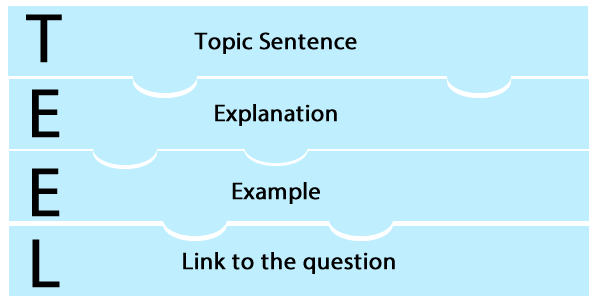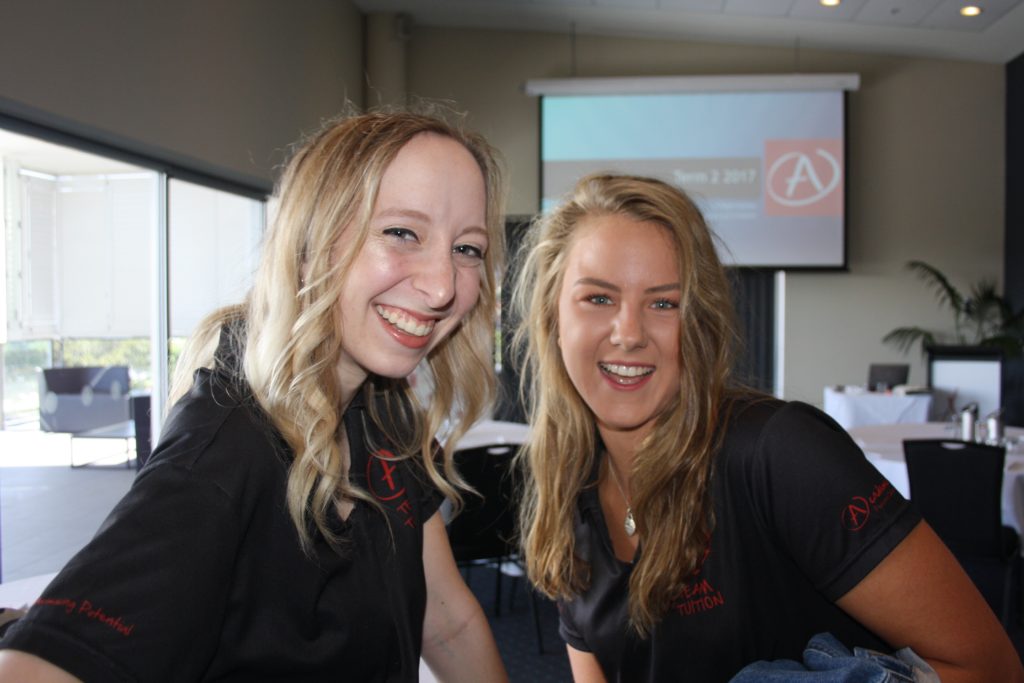How to Get an A in English: 7 Simple Steps
7 Rules For Achieving An “A” Grade In English
In my role as an English tutor, I’ve too often had my students say to me, “It’s impossible to get an A in English.”
As an English major at the University of Queensland, and someone who has, indeed, achieved the illustrious A-grade, I call this for what it is: folly.
The infamous A for English is not, as many believe, unattainable or impossible. In fact, it is quite within the realm of possibility for each and every student who is willing to put in the effort, and follow a certain set of ‘rules’ that most English subjects require.
“Rules?” I hear you ask. “English doesn’t have set rules – that’s why it’s impossible to get an A. It’s all… grey, while Maths and Physics and Sciences are black and white.”
While it is true that English is more subjective, rather than definitive, there are nonetheless elements that students can utilise to help them achieve a higher grade. Of these elements, there are 7 main ‘rules’ that students should follow to achieve that elusive A in English.
1. Answer the Task Appropriately
If I asked you, “What’s 2 + 2?”, there’s no way you’d try and tell me how many watermelons I could buy with $10. Now, that might sound like a completely out-of-the-park example, and yet, so many English students do something similar when it comes to answering their assessment task.
Every English assignment, no matter what, has a core task or issue that a student must respond to. However, often students do not do enough to answer the task appropriately.
This often begins in not reading the task sheet correctly. Careful attention must be paid to what the task sheet says. What is the type of your assessment? Is it a feature article, a speech, a piece of creative writing, or an essay? If it’s an essay, what kind of essay is it? There’s a big difference between an argumentative, persuasive, or expository essay.
There’s even a big difference between an editorial, a feature article, and a newspaper article – even though they are all, technically, articles! Each type of assessment has its own set structure and rules. While your teacher will often go through the assessment type in class, it is your responsibility to adhere to the rules consistently when you compose your work.
The task sheet will also outline whether you must respond to a specific stimulus item, such as a poem, image, song, or so on. It could additionally tell you how many examples you should provide, how many words you should write, or which themes you must focus on. In your response itself, you must make sure to respond to all the elements outlined on the task sheet. Those will be your variables – elements which will change depending on the assessment at hand.
You also need to make sure of some set rules that run across the board with all English assignments. One of the most important rules of English writing is following the TEEL method. TEEL stands for Topic, Evidence, Evaluation/Explanation, and Link. It is the basic structure for almost all paragraphs.
You begin with your topic sentence, introducing the idea you are to analyse in the paragraph. You then follow with your evidence for the idea – this is mainly a quote or fact. You then evaluate and explain the evidence, and how it fits in with your topic idea. Finally, you conclude your paragraph with a linking sentence, where you connect your idea with the next topic you will explore.
2. Work With Your Teacher
Much of what I have outlined in the first reason comes from my own teachers. Since high school, I have made it a priority to work closely with my teachers, tutors, lecturers, librarians, and various other staff members. I would 100% recommend doing the absolute same! Your teachers and school staff members are treasure troves of information. They are aware of every element in the task sheet, and have often spent endless hours themselves analysing the criteria and requirements of the task.
More importantly, they will be marking you! English, as I mentioned before, can be subjective; it can often come down to someone’s opinion of how well your work fulfils the set criteria. Yes, there are boundaries to what your teacher can mark you up or down for, but it is still up to their personal and professional opinion.
For this very reason, it is imperative that you always know what your teacher wants from your assessment. You can do this by constantly asking questions, talking to your teacher, or flicking them emails (if they have allowed for this). More often than not, English teachers are not the scary old crones that students make them out to be!
They have a genuine love and passion for words, literature, and discussion. They are creative thinkers, full of imagination and wonder at the themes and elements that exist in our world. They have cried over their favourite book characters, analysed their favourite novel half to death, and spent many a late night reading page after page of Eragon.
Okay, so maybe I’m delving a bit too deep into my own journey here. But truthfully, if you show that you are passionate – or even just a care a tiny bit! – about what your teacher has dedicated years of their life towards, then you will find that an English teacher will do everything in their power to help you succeed!
If you do happen to stumble upon a teacher that refuses to work with you, doesn’t seem to care about you or your work, or outright seems to hate you, do not stress! There are ways around this issue. Possible solutions include sitting down with the teacher and personally discussing the situation or work, getting another teacher’s advice or opinion, or even heading to your Head of English to get them to help you out. At the end of the day, your teachers must be respected, but they are employed for the purpose of furthering your education. Take that opportunity!
3. Go Beyond The Task
The aforementioned reasons can be considered foundational. You must do them before you even think about achieving a C or B in English, let alone an A. But from hereon out, we begin to look at habits that will propel you above the average achievement. These habits, as the reason’s title suggest, requires you to go beyond.
If you want to achieve an A in English, you cannot be content with simply doing the bare minimum. You must push yourself. English can simultaneously be one of the most challenging yet easiest subjects to succeed in. It can seem easy, simply because much of it comes from foundational research – often provided to you by the teacher – or from your imagination. But the challenge comes when you push yourself outside of relying on your teacher or your imagination, and you look towards the various resources that are available to you.
There are 3 main areas that will allow you to go beyond what is provided for you. The first of these is external research. While I can assume that you would already be finding research for your assessments, I can guarantee that if you’re not achieving an A, then you’re not doing qualitative research.
Qualitative research – research that is of the highest quality and substance – extends beyond simply focusing on the topic of the assessment. It includes researching the focus text – often a set novel – and its history. It includes researching the author and their life, and any of the social or historical contexts they were in.
It includes reading reviews and other works focused on the set text. This allows you to see the text from an outside point of view, and throw in any ‘extra’ tidbits of information or research. You are then miles ahead of any other student in your class!
That will enrich the research element of your assessment. But what about your imagination? How can you, as a student, strengthen your own imagination?
By drawing upon the imagination and ideas of others, of course!
Now, it is important to note that plagiarism is the worst crime an English student can commit. Your imagination and brain is a treasure trove unlike anyone else’s. Do not discredit it by substituting it for another person’s ideas and thoughts. Rather, I am recommending that you take note of other people’s point of view for inspiration, not replication.
Doing group discussions and study sessions will skyrocket your experience, particularly if you do it with students who are typically high-achieving. The people around you will influence you – not only in your personality, but also in your work ethic and study habits.
Finally, if you are serious about improving your grades and achieving the highest possible grade in English, get a tutor! It’s one thing to be doing extra research or being inspired by your peers. It’s a different thing entirely to be able to have an invaluable teaching machine assisting you every week! I can say from my experience that students who have a tutor are far more likely to achieve better results. I hate to do this – but take myself, for example.
In assisting my students, I am able to not only offer my personal experience, but also additional understanding that I receive from my combined Education and Arts degree. My focus areas in Drama and English have allowed me to explore a range of ideas, theories, and themes that a typical high school student hasn’t had the chance to explore (yet).
Therefore, as a tutor, I provide an additional level of research, plus heightened experience – not to mention I am able to act as a coach, motivating and inspiring my students to achieve far beyond what they even imagined! I cannot stress enough how invaluable a tutor is for a student – let alone an Academic Personal Trainer.
4. Read Widely
I will unashamedly admit that this reason is my favourite one to hound students with. I hold to the strongest belief that reading offers improvement in every area of your life. It is possible to improve your education, your actions, personality, relationships, lifestyle, beliefs, abilities, and a plethora of other elements, by reading books.
Furthermore, multiple University sources have proven that reading can improve your brain function and connectivity, reduce stress levels, and has numerous other beneficial impacts. Therefore, for the sake of your own sanity – pick up a book and read!
In terms of reading’s impact on your education, we must look at one specific area of assessment criteria: Understanding and controlling of textual features. I can guarantee that in every assessment piece, your criteria makes a mention of grading the vocabulary. If you look at an A-standard grade for vocabulary, it often says the following:
“The student work has the following characteristics: Discerning use of a wide range of apt vocabulary for specific purposes”
It’s not enough to simply respond to the task. You have to possess a wide vocabulary, extensive enough to fit your vocabulary to what the task itself needs. Let me explain: the language and words I choose to use in an editorial is completely different to the type of language I’d use in an argumentative essay. The language I’d use in an argumentative essay would in turn be different to the type of language I use for a persuasive essay, a multi-modal oral presentation, or a piece of creative writing.
However, if you don’t have a wide vocabulary, you’re unable to fit it to suit the specific assessment type anyway – thus failing the “discerning”, “wide range”, “apt”, and “specific purposes” aspects of the criteria altogether! Essentially, all you’re left with is “Use of vocabulary” – a guaranteed E grade for that part of the criteria.
This is where reading is an invaluable resource for you. Reading different books or texts improves your vocabulary extensively. Each author has their own voice, even in their written work. Experiencing a range of novels will allow you to experience ideas, language choices, and stories that you never even thought possible. You will experience words that completely throw you off and leave you in a tailspin for what they mean!
Just as an example, I dare you to go back over this blog post and look at all the different words I have used. Take note of any that sound impressive, or that you haven’t heard before. I cannot claim that I have known these words forever! Rather, I gathered up every single one of them either by reading novels, exploring articles, or looking through dictionaries. Texts have proven to be an invaluable resource for me in my personal, academic, and career areas. I would not be at the point I am today, achieving grades I am proud of, if it was not for my extensive reading experience!
Reading beyond novels, additionally, will greatly increase your knowledge. Scientific journals, biographies, self-improvement books, and historical texts will provide you with knowledge far beyond what you could think of or imagine on your own.
All of that having been said, it is particularly important that you build up the habit of reading, so that when the time comes, you’re able to read your set English text easily and effectively. You absolutely cannot achieve an A in English if you do not read the whole set text. Websites and resources like Sparknotes, Cliffsnotes, Shmoop, or even Wikipedia can prove helpful in providing ideas or analysis that you haven’t thought of. But, take very careful note of the following statement:
A supplement is not a substitute for the source.
It is not, in any English classroom, okay to not read the set text. You are doing yourself, your teacher, and the author a disservice if you ‘give up’ and just ‘read the notes’.
5. Take Content in Actively
It is important in any classroom to make sure you are alert. Taking in content actively means being completely focused on the work you’re doing, and doing your best to go above and beyond it! For example, a passive student will simply write down all the notes on the board without understanding them fully, or just read the novel through once.
An active student, however, will make sure that they take notes not only in class, but also while they’re reading. They’ll read the work at least twice – once to experience it, and then a second time to write notes and questions that you have. These can then be answered by your teacher or further research. It’s simply not enough to take in the content of the text. I would also recommend doing – either in your second reading, or in a third reading – an analysis sheet.
This is where you analyse the characters, plot, symbols, and themes, by writing down quotes from the text, and what they mean. This will prove incredibly helpful to you in the long run, as you’ll develop an active understanding of the text, rather than just a passive experience. It’s an incredibly simple, short, and sweet recommendation – but incredibly useful in the long run.
6. Make Sure You’re Organised
You could be an A-grade student in terms of your talent, abilities, and experience, but it may mean next to nothing if your study and assessment habits are sub-par. Every student aiming for an A must make sure to be organised and efficient with their time and effort. You should be planning ahead, scheduling what parts of an assessment you will write and when, according to the due date. I would go so far as to schedule time for when you do your reading and research of the text itself.
Once you have a schedule, make sure that you are able to organise your notes accordingly. Your notes should be clear – whether they are from class, your teacher, or your own personal reading/research time. If the way you initially take notes is all over the place, then organise it all, according to themes or elements that you will be exploring in your assessment piece. Make it as easy as possible for yourself to find and utilise everything you have gathered. Also make sure to get a planner for your due dates, and a file holder for any notes that you may take in your personal research, group studies, and tutoring time.
This will help you to do what I vehemently recommend to every student: submit drafts. If you are able to manage your time and organise your content, then creating a draft well before the due date is easy. Ideally, I would recommend submitting at least two drafts before any given due date. This comes back to your teacher not only being the one marking you (which means you need their opinion!), but also being an invaluable resource for you to improve! Like I said before – take that opportunity!
Make sure, finally, that you leave plenty of time to edit and check over your assignment yourself. Never, ever, ever submit a draft or final without reading through it yourself. You will find not only mistakes, but also areas of improvement that you otherwise would have missed in your initial writing!
7. Know You Can
One of the biggest issues I often find in students is that they don’t believe in themselves. So many students are held back by their fears and anxieties, too scared to step out of their comfort zone. As someone who was once in that position, let me assure you that absolutely every student is capable of incredible, amazing things.
You have been gifted with an amazing brain, and the possibilities of human capability is almost endless. Constantly, we see people – heroes – exceeding expectations and circumstances, to achieve impossible things. There is absolutely no reason why you, as a student, would not be able to do the same.
Building up one’s courage takes time. This is where the people around you will absolutely come in handy! Find that one teacher, friend, or family member that believes in you no matter what, and focus on what they have to say. With time, the support network you have will build, and you will be encouraged to take risks and think outside of the box.
And it is that kind of thinking that English needs. You need to be able to stretch your imagination and be unafraid to not just step outside of the box, but to take a baseball bat and completely smash the box in half. Your creativity is invaluable, and so treasured in English. It should be your focus to develop it! Once you begin to do this, surround yourself with supportive people, and take note of the previous tips outlined above, you are on your way to achieving the best possible grade you can receive.
Looking to improve in other subject? Find more of our guides here:
- High School Maths A
- High School Maths B
- High School Maths C
- High School Legal Studies
- High School History
- High School Economics
- High School Chemistry
- High School Physics
- High School Biology
- High School PhysEd
- High School Drama
- High School Business Studies
… What Our Clients Have To Say …
“Alongside greatly encouraging improvement in his academic results, the most outstanding and important outcome has been enhancement of his self-motivation and drive, and even more importantly, development of his self-confidence.”
Sharon – Mother
“Their approach to working with young people as extremely professional and very much focused on the individual needs and circumstances of each child. A Team is focused on delivering the best possible outcomes to all students irrespective of their academic ability and are well versed in supporting children within the Out Of Home Care sector.”Jason – Former School Principal
“In our experience, what we have found is the A-Team are prepared to be flexible (they really do look to provide the right tutor to the student) and are genuinely committed. A-Team are able to mentor and develop other key forms of aptitude, including emotional and social forms of intelligence.”Angus and Maria Cowan – Parents
“Not only do the team at A Team improve grades, they also focus on the underlying skills and qualities of character required to continue on the right path in life.”Michael – Father
“Their unique approach to helping students feel confident in their preparation for exams, assessments and increasing their literacy and numeracy skills, sets them up for success, no matter their hesitations. It is so important, especially within this generation, to find ways to keep students engaged in the learning process.”Lucy – Senior School Teacher
“A Team Tuition has helped me develop into the best student that I can be. I am now reaching my full potential thanks to them. They are so supportive and really understanding. All the staff at A Team Tuition really are passionate and so friendly.”Mae – Year 12 Student
“His tutor had instant rapport with him and was able to get him to open up about things we had no idea on (despite asking what we thought were the right questions!). Our son’s teacher has already mentioned how much more focused he is and that his attention to detail is improving. We are really very impressed with A Team Tuition.”Katrina – Mother
“A Team came to me and in just less than a term working with them I received an A for maths (the subject I struggled most with!) I definitely recommend A Team Tuition, this great, supportive team will help you succeed!”Skylah – Year 9 Student
“The word “Proud” doesn’t even come close to expressing how we felt last night at our daughter’s Awards Ceremony. The studying structure and skills she has developed since starting with the program has been invaluable.”Collette – Mother








